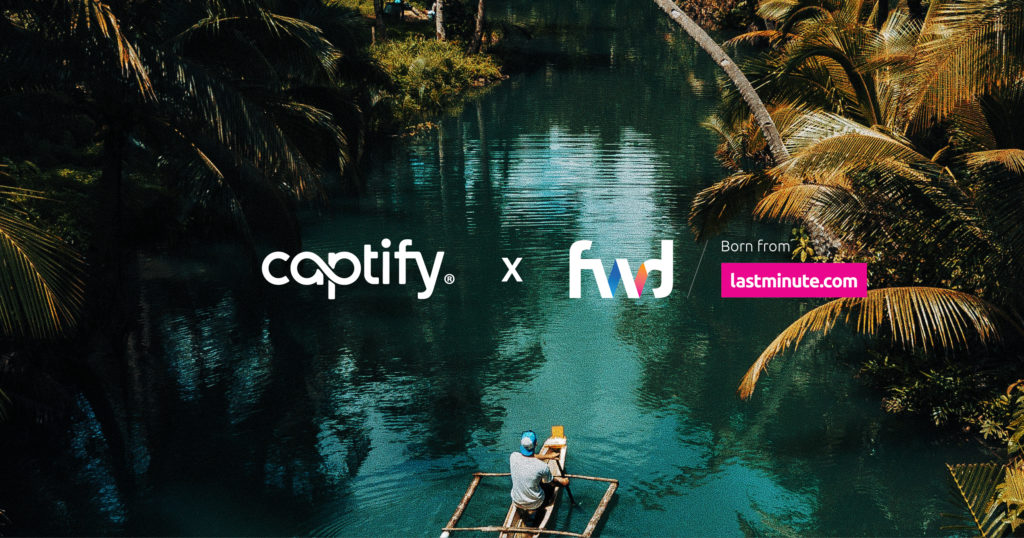By Giacomo Giuriani, European Director at Forward and Fiona Salmon, Global Vice President of Partnerships at Captify
Travel has changed. As one of the industries most impacted by Covid, a tough and volatile two years have taken their toll and travel brands have been left with a host of complex challenges. Post-pandemic, it’s difficult for brands to know if they should be marketing to the same consumers and leveraging the same strategy. In short, the answer is no. Consumer booking preferences and behaviours have changed, but how so?
Through analysing unique onsite search and transactional booking data, Captify and Forward, the media and marketing arm of lastminute.com, the European Travel-Tech leader in dynamic holiday packages, have uncovered new travel trends triggered by the pandemic and emerging audiences that will shape the future of travel.
A swell in wellness seekers
The COVID-19 pandemic reinforced the increased importance of prioritising mental and physical wellness and elevated it as a value for consumers across the globe, including travellers. Captify’s Search Intelligence saw more than 56 million average monthly wellness travel searches and a surge in growth of wellness seekers across both the UK and Europe – with a 10.7X and 3.2X increase, respectively – fuelled by a growing generation of travellers looking to integrate wellness into their trips. This audience is actively seeking more information about spa retreats, self-care, healing retreats, detox and holistic nourishing experiences.
Sustainable travel sprouts
There is also a surging audience of sustainable travellers who are actively searching for more information on eco-travel, zero waste travel, eco and green accommodations, and carbon offsetting. In particular, sustainability seekers are looking to reduce their carbon footprint by exploring destinations closer to home, supporting local communities while travelling, and booking more sustainable stays.
When deep-diving into what sustainable travel entails, 61.5% of European searches and 41.7%of UK searches are destination-focused. This suggests that sustainable travellers are looking to explore destinations that are less impacted by over-tourism, such as visiting second cities or even travelling off-season.
The ‘work from anywhere’ generation
More travellers than ever before are extending their trips. Where once a one to two week holiday was the norm, stays of 3-4 weeks and 1-3 months have increased by 25% for European travellers and 40% for UK travellers in 2021, compared to the previous year. This shift is likely driven by younger generations taking advantage of the ‘work from anywhere’ options made available in many workplaces.
The desire for hybrid, remote working options looks like one post-pandemic trend that’s here to stay. It is fast becoming a prerequisite on job descriptions and opens up a world of flexible working beyond childcare and commuting. Advertisers potentially have an all-year-round opportunity to tap into travellers here, as the continual flexibility means this form of travel could have fewer ties to seasonal tourism fluctuations. It could even open up opportunities with new audiences.
Leaving it to the last minute
According to booking data from Forward between 2020 and 2021, last-minute trips surged for travellers, with flight bookings made less than two weeks in advance growing from a quarter (25%) to almost half (42%) of total flight bookings. A smaller window for travellers means that their path to purchase and consideration time has shortened significantly versus pre-pandemic. Advertisers, therefore, need to be able to pinpoint this intent at the right moment to convert lookers to bookers. Otherwise, they will lose their opportunity rapidly.
As we edge closer to a ‘new normal’, new variants are having fewer and fewer repercussions. Travel restrictions are easing and traveller confidence appears to be strengthening, even with spikes in cases such as those driven by Omicron. We can’t be sure if Covid really is becoming a thing of the past, but travel bookers certainly want it that way and travel brands need to make sure their shop doors are propped open, ready to welcome them in.
The pandemic has proven that consumer behaviour can shift without warning, brands need to think on their feet and be able to anticipate the macro-level changes that are happening across their verticals. Leveraging data will empower brands to truly see how travel behaviour has evolved and pinpoint the emerging insights and trends that are driving travel right now.
It’s vital for publishers and advertisers to have access to datasets that complement their own first-party data, and integrate dynamic search data to understand the broader consumer trends happening outside of their own world. From large scale market shifts to a granular understanding of intent-led behaviours, having this knowledge is critical, especially given this type of data will become increasingly rare with the deprecation of third-party cookies.
If they haven’t already, brands need to be rewriting their advertising playbooks now to meet the expectations of the 2022 generation of travellers. By turning data into actionable insights, brands will be able to successfully navigate travel post-Covid and emerge from these tumultuous years triumphant.









